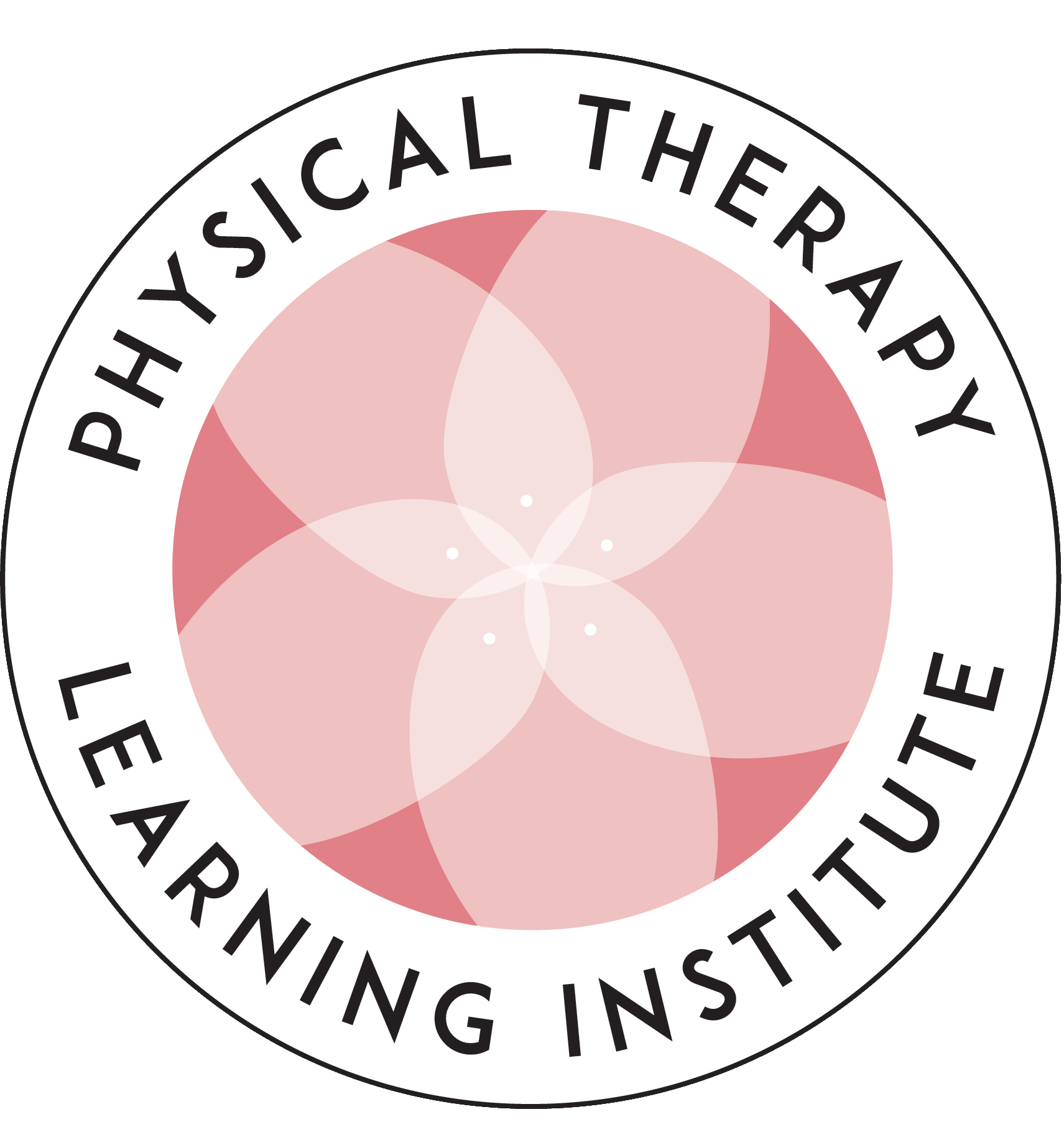The Physical Therapy Learning Institute is proud to host
Disruptive Innovation in Physical Therapist Education
“Reimagining Physical Therapist Education: A Virtual Summit”
April 16-17, 2021
Conference/Summit Description: For many years, there has been robust and ongoing discussion related to excellence in physical therapist education. Recent conversations around the return on investment (ROI) for education in the profession; post-professional education (residency/fellowship training); workforce issues; diversity, equity, and inclusion (DE&I); and most recently, the COVID-19 pandemic have escalated the conversation and required institutional action to reimagine physical therapist education. This virtual summit is intended to stimulate deep conversation and foster action among the invited attendees to address both anticipated and unexpected opportunities for change in physical therapist education. The time for change has arrived. Outcomes of this discussion could result in a call-to-action, a white paper, or some other form of formal or informal dissemination.
Conference Format: This virtual, online summit occurred on April 16-17, 2021 (see detailed schedule below). Attendance was limited to 100 invited attendees representing a wide variety of physical therapist education programs from across the country. The summit theme was “Reimagining Physical Therapist Education.” Over the course of the summit, there were three sub-categories of facilitated debate and conversation. Within each sub-theme, one or two pre-arranged speakers presented a brief (10-15 minute) argument in favor of the concept, and then another pre-arranged speaker(s) presented the argument against the concept. This was followed by a guided/facilitated group discussion.
Conference Speakers:
-
Keynote Speaker/Ignite: William B. Cutrer, MD, MEd; Associate Dean for Undergraduate Medical Education, Vanderbilt University and Editor of The Master Adaptive Learner, 1st Edition, from the American Medical Association MedEd Innovation Series: Innovations from the Accelerating Change in Medical Education Consortium. 2020, Elsevier, Inc. ISBN: 978-0-323-71111-1.
-
-
Cutrer Presentation:
Hybrid PT Education
Description: Speakers presented the pros and cons of hybrid education in general, why it should be adopted more broadly or not, varying models of hybrid education, online delivery of foundational material, and how it may impact the cost of education (or not). There will also be discussion of how COVID-19 has impacted this concept.
-
Melissa Lazinski, PT, DPT, DHSc (Associate Professor, Nova Southeastern University (NSU), Tampa, FL), Pro Team
-
John Buford, PT, PhD (Professor & Director, PT Division, The Ohio State University (OSU), Columbus, OH), Con Team
Reduction of Unwarranted Variation in PT Education
Description: Speakers presented the pros and cons of unified start times/graduation dates, residency start time, time to enter clinical education, expectations for clinical rotations (Level 1 vs Level 2), the purpose of ICE/how they are done, standardization of curricula, and more.
-
Mike Sheldon, PT, PhD (Associate Provost for Academic Affairs, University of New England, Biddeford, ME), Pro Team
-
Jill Horbacewicz, PT, MA, PhD (Associate Professor and Chair, Physical Therapy Programs, Touro College, Bay Shore, NY), Con Team
Time-Variable, Competency-Based PT Education
Description: Speakers will presented the pros and cons of the need for, the value of, and barriers to TB-CBE in PT education throughout the continuum of learning.
-
Steve Ambler, PT, DPT, PhD, MPH (Associate Director of Professional Curriculum in Physical Therapy; Associate Professor of Physical Therapy & Orthopaedic Surgery, Washington University School of Medicine in St. Louis, St. Louis, MO), Pro Team
-
Carey Holleran, PT, MPT, DHS (Assistant Professor of Physical Therapy & Neurology, Washington University School of Medicine in St. Louis, St Louis, MO), Con Team
Participants were encouraged to read or review the following articles prior to the Summit:
-
Emanuel EJ. The Inevitable Reimagining of Medical Education. JAMA. 2020;323(12):1127–1128. https://doi.org/10.1001/jama.2020.1227.
-
Lucey CR. Medical Education: Part of the Problem and Part of the Solution. JAMA Intern Med. 2013;173(17):1639–1643. https://doi.org/10.1001/jamainternmed.2013.9074.
-
Gagnon K, Young B, Bachman T, et al. Doctor of Physical Therapy Education in a Hybrid Learning Environment: Reimagining the Possibilities and Navigating a “New Normal”, Phys Ther. 2020;100(8):1268-1277. https://doi.org/10.1093/ptj/pzaa096.
-
Lucey CR, Thibault GE, Ten Cate O. Competency-Based, Time-Variable Education in the Health Professions: Crossroads. Acad Med. 2018;Mar;93(3S Competency-Based, Time-Variable Education in the Health Professions):S1-S5. https://doi.org/10.1097/ACM.0000000000002080.
-
Powell DE, Carraccio C. Toward Competency-Based Medical Education. N Engl J Med. 2018;378:3-5. https://doi.org/10.1056/NEJMp1712900.
-
Josiah Macy, Jr. Foundation, Conference Recommendations. Achieving Competency-Based, Time-Variable Health Professions Education. June 14-17, 2017, Atlanta, GA. Available at: https://macyfoundation.org/assets/reports/publications/jmf_cbtvhpe_summary_web_jmf.pdf.
-
Chesbro SB, Jensen GM, Boissonnault WG. Entrustable Professional Activities as a Framework for Continued Professional Competence: Is Now the Time?, Phys Ther. 2018;98(1):3–7. https://doi.org/10.1093/ptj/pzx100.
-
Ambler SA, Jette DU, Nordstrom T. Return on Investment in Physical Therapy: Professional Tension. Phys Ther. 2020;100:2227–2230. https://doi.org/10.1093/ptj/pzaa163.
-
Thibault GE. The Future of Health Professions Education: Emerging Trends in the United States. FASEB BioAdvances. 2020;00:1–10. https://doi.org/10.1096/fba.2020-00061.
Short video presentations
All attendees were encouraged to submit a short video presentation related to one of the three conference topics:
-
Topic 1: Hybrid Physical Therapist Education
-
Topic 2: Reduction of Unwarranted Variation in Physical Therapist Education
-
Topic 3: Time-Variable, Competency-Based Physical Therapist Education
The presentations were related to research (published or ongoing) around one of these topics, or they represented thoughts on a topic (pro or con) before the conference dialogue begins. All registered participants had the opportunity to view the recordings before the conference.
Link to video presentations. A guest password will be required.
Questions? Please contact Summit Organizers Karen Abraham at kabraham@su.edu or Greg Hartley at g.hartley@med.miami.edu

